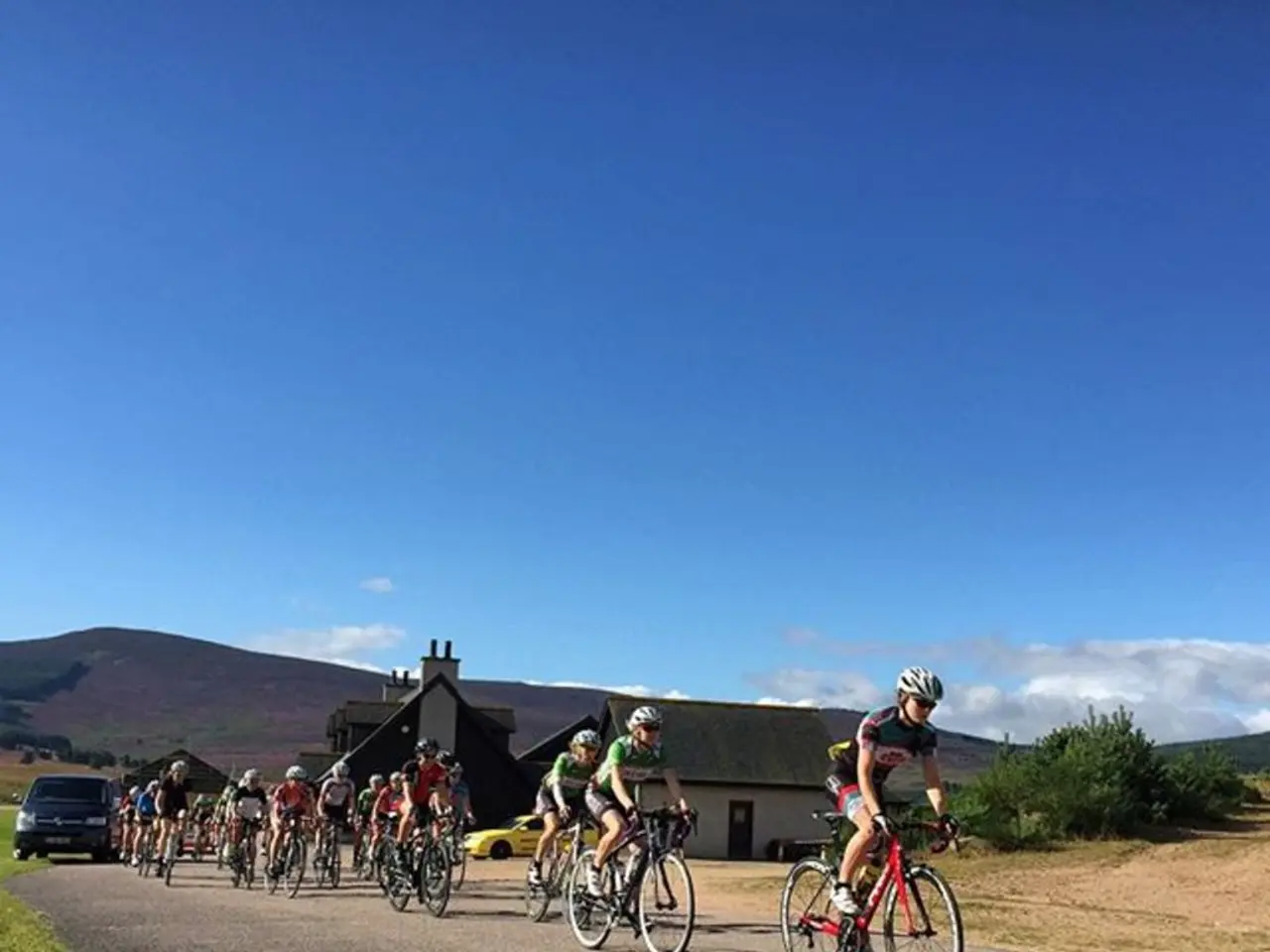Lidl-Trek ownership shift affords extended strategic perspective for women's cycling team
Michael Rogers, the team manager of Lidl-Trek, has highlighted the dramatic changes in the sport of cycling over the past few years. The team, which has traditionally been a strong contender in women's cycling, is now poised for even greater success, thanks to a significant boost from Lidl's acquisition of a majority ownership stake in the team.
This partnership marks a long-term commitment from Lidl, resulting in increased investment and infrastructure support for both the men's and women's squads. For the women's team, this infusion of resources is expected to fuel further growth and success, helping Lidl-Trek rival other top WorldTour teams and continue its reputation for professionalism, team culture, and consistent high-level results.
The women's team stands to benefit from substantial funding increases, which include plans for a state-of-the-art Performance Center. This facility will focus on athlete health, recovery, and performance analysis, providing an edge in the increasingly competitive landscape of women's cycling.
The team's roster is also seeing some changes. Elisa Longo Borghini, one of the original members, has moved on, and Lizzie Deignan, a headline signing, has announced the end of her professional career. However, the team is not lacking in talent. Niamh Fisher-Black and Gaia Realini, both 24, are developing as General Classification challengers, while the team has a raft of younger talent, including Felicity Wilson-Haffenden, the 2023 junior women's world time trial champion, and the twin sisters Ava and Isabella Holmgren.
The evolution of women's cycling has led to a distribution of champions among more teams, resulting in more dynamic racing. Lidl-Trek, which was one of the only teams that could challenge Boels Dolmans (now SD Worx-Protime) for the top spot in the rankings in 2019, no longer stands alone. SD Worx-Protime, UAE Team ADQ, and FDJ-SUEZ are rising rapidly, making the competition for top riders and team positions more intense.
Rogers emphasized that the natural growth of cycling is preferable to simply cutting and pasting an athlete from one team to another. While the team is not necessarily planning to chase after established big name riders, it will be careful in its approach to transfers. The risk in transferring riders from one team to another can lead to a period of adaptation and potentially disrupt existing relationships between coaches and support staff.
The Tour de France Femmes, set to take place this year, promises to be a fierce battle. Alongside Lidl-Trek, other teams are also squarely in the General Classification (GC) battle. Rogers stated that the competition for top riders has increased significantly this season, making it crucial for the team to maintain its focus on rider culture and support to remain at the forefront of women's professional cycling.
In summary, Lidl's majority stake provides the women's team with enhanced financial backing, improved infrastructure, and a long-term strategic foundation to remain competitive at the highest level internationally. This partnership is aligned with the partners’ aim to build “the best team in international road cycling” and makes Lidl-Trek a more attractive destination for top riders and talented new athletes.
Sports like road cycling are set to witness significant growth, with Lidl-Trek poised to become a dominant force, thanks to their partnership with Lidl. This increased investment will not only bolster the team's infrastructure but also fuel further success for the women's squad, aiming to rival top WorldTour teams and maintain their reputation for professionalism and high-level results.







